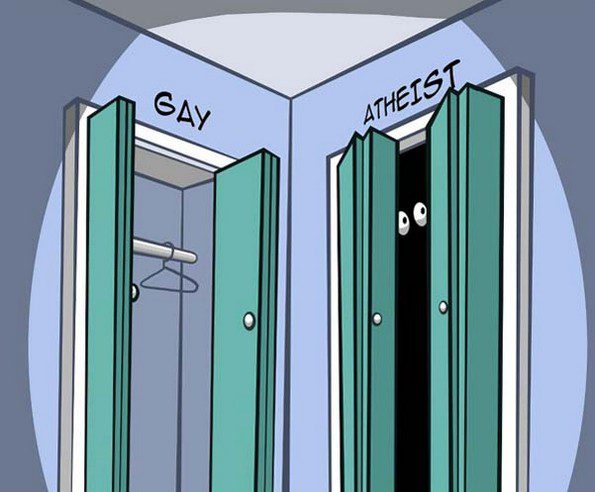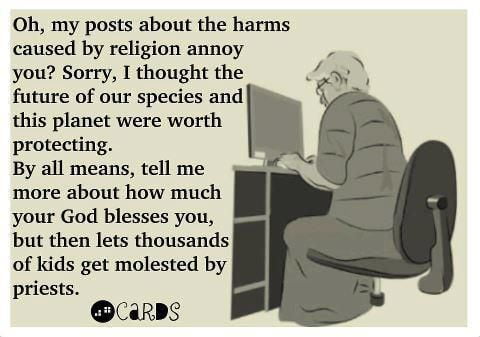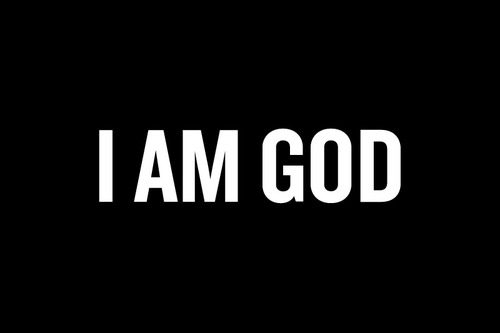
Guest post by Michael D. Speir
I ran across a quote this morning:
“A bird doesn’t sing because it has an answer, it sings because it has a song.”
Most sources say it came from Maya Angelou; although, oddly, Lou Holtz is often named, and sometimes others. In fact, it came from American poet and children’s book author Joan Walsh Anglund. (Time Quote Investigator)
I don’t know the context of the quote, so I can’t be sure of the intended point. At face value, though, it’s one of those sayings that could easily become platitudinous. It’s a sword that could be wielded with good effect from both (all?) sides of the line of battle. Some might use it to slash at perceived intellectual elitism. In that capacity it reminds me of a far-less-inspired line thrown about often and sloppily during my Christian upbringing: “They have the arguments, but we have the experience.” Basically, that reduces to approximately, “If it feels good, believe it.” But feelings are notoriously fickle and amorphous, consequently unstable, attesting to little more than the sensations themselves. The reason we live, and live so long, in this modern world is that we’ve finally reached an average level of maturity such that we distrust emotions, doing our best to correct for them when we investigate Important Things. Because Reality can be a harsh environment in which to exist, what makes us feel good often doesn’t accord too well with it. So we find ourselves steering off the path to Truth so we can go out and roll in the more pleasant clover of Feelings.
That said, emotions are fundamental to what it means to be human. We live because we enjoy living. To the degree knowing Truth enhances that enjoyment, Truth is esteemed worth knowing. To the degree it doesn’t — well, delusion feels better. I’m much more sympathetic to that sentiment than my use of the pejorative “delusion” might imply. I mean, if on average life doesn’t feel more good than bad, what’s the point of it? So much the worse for Truth! The bird can’t answer, Why is there something rather than nothing? And still it sings.
Maybe The Ultimate Answer to The Ultimate Question shouldn’t be ultimately important to us, either. And it isn’t. Multiplied billions — down to the very last man, woman, and child — have lived their lives not having that Answer, with most hardly giving it a passing thought. And what better proof of that than the shallow stabs at answers we hear from those most noisily clacking about knowing!
Any creature that doesn’t want to live won’t care enough to do the things necessary to survive. I’d like to avoid anthropomorphizing “want” here. Yes, we humans can reflect on our wants and guess at why we have them in ways no other known creature can. But we would want to live even without the capacity to understand why we do. The amoeba has no clue about why, but let it come under threat and you’ll see how much it “wants” to live. Even the lowly plant, lacking a nervous system, will attempt to repair itself when injured, because it “wants” to live.
But our survival instinct isn’t only an aversion to dying. Overabundantly more, it’s about enjoying living: that joie de vivre, as the French say. If death weren’t about giving up living, we wouldn’t fear it like we do. We like singing that song. We’d rather not stop.
And that song comes naturally, as a biological endowment. I grew up being taught that connection with God is the only path to joy. “Know Jesus, know peace; no Jesus, no peace,” I’d hear a lot. I believed that, because I had been taught nothing else. And yet, over the years, exposure to the windblown grit of reality scoured away at my certainty. Even as I taught others what I had been taught, I doubted it myself — and largely unbeknownst to me! When circumstances at last conspired to thrust my disbelief into my active consciousness, the revelation of it hit me like a thunderbolt: You know, I don’t believe this stuff — and I don’t have to! In a flash I understood how my efforts to convince others had been far more to convince myself. After all, my family and my friends, those with whom I had to get along in life, believed it. I had to believe. And yet, I couldn’t. Oh, the mental tumult I endured in the attempt! It had torn my life to shreds.
The abrupt realization that no one is justly duty bound to do what he can’t do was like the proverbial ten ton weight dropping from my shoulders. No, I didn’t believe, and that was okay. But don’t get the idea that all was sweetness and light, smiley suns and gleaming rainbows thereafter. My life had been founded on the Christian religion. It was the ground on which I had been standing. Though I could now admit I didn’t believe it, I despaired of my footing. At least I had believed it would be good to believe; it had been something to shoot for. I didn’t even have that anymore. Nowadays, when I hear Christians protest that without faith life could have no meaning, no joy, and no peace I understand where they’re coming from. For some time after my “deconversion” it seemed that pronouncement might prove prophetic.
But a funny thing happened. Well, I guess “happened” is too sudden. It stole up on me, over time. Still, it surprised me when one day I woke up to the realization that, little by little, the joy and the peace and the sense of purpose had taken me unawares, as it were. I understood then that these aren’t things given to us by any god. We don’t even need faith, however misplaced, in any god to get them. They’re part of our biological make-up. In the genetic sloshing around of multiplied millennia of reproduction, those who evolved keenest sense of peace, joy, and purpose were the ones who most wanted to live. They were naturally the ones who took the greatest pains to live. They were the ones likeliest to live long enough to pass on their relatively buoyant genes to another generation. Over time, the average levels of peace, joy, and sense of purpose elevated in the general population to where today they’re intrinsic parts of our make-up that will inevitably bubble to the surface unless persistently beaten down by adverse circumstances or the contrary expectations of others.
Now, it’s not equal from person to person. Just like more prominent traits — say, physical features and capacities or intellectual prowess — vary a lot among us, so, too, do our brains’ production of things like dopamine and serotonin. At one end of the bell curve are the perpetually and annoyingly sunny types who can’t give a good excuse for the smiles chiseled into their faces. At the other are the paranoiacs, those for whom a grin might be painfully disfiguring. Most of us lie at some relatively comfortable spot in the middle. I’m probably more on the slope down toward paranoia, myself. I always have been. I was when I most fervently believed and I still am. It’s a fact of life for me. Even so, I’ve found that life brings me lots of joy, and it does now probably as much as it ever has. Nowadays, I can admit I don’t have all the answers to the Big Questions. And yet, somehow, I still want to sing.





